4 things to know before you buy Google Home
The Google Assistant has escaped, and it's haunting your house. No longer is it trapped in your phone or your browser: instead, the power of Google's so-called Knowledge Graph now gets a new enclosure, the vase-esque Google Home. Like Amazon's Echo, it reacts to voice rather than touchscreen or buttons, and like Amazon's assistant Alexa, it promises to streamline your day and entertain your evenings with its personalized knowledge of your tastes and interests. Sounds great, right? Turns out, there are a few things you ought to bear in mind before you bring Home home.
Google Home is not family-friendly - yet
No, Google Assistant isn't going to cuss out your kids or insult your grandmother's cardigan. Artificial intelligence hasn't quite realized how tedious its human rulers are, at least not yet. But if you're envisaging Home as the AI butler for everyone in the house, think again.
At launch, there's only support for a single Google Account. That means, if you've got four people in the same house, each with their own Google credentials, only one person will be able to sign into Home. Arguably more frustrating, there are further limits on top of that: Home can only handle one of your calendars at a time, so if you have both a personal and a work schedule, it'll keep on top of one but not both.
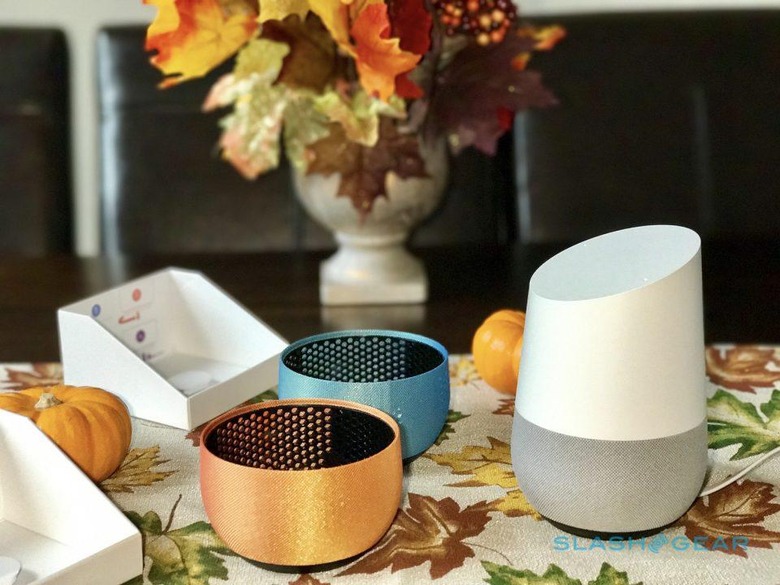
By all intents, Google is aware of the limitation, and has suggested that a fix for it will arrive at some point in the future. Whether that will use voice recognition to figure out who is talking and which account to pull answers from remains to be seen. It's worth noting that multi-user support is available in one area: you can have several streaming music provider accounts signed in, and Home will use all of them.
Google Home might be too chatty for its own good
Although being the single user signed into Home might sound like a good thing, it's worth remembering that there's no security on the system. In fact, the Google Assistant will happily chat with anybody who utters the "Ok Google" trigger or taps Home's capacitive button – including answering questions about personal data from your calendar and more. If your kids pester Home with search after search for "Dora the Explorer" YouTube videos, that history is going to impact your own YouTube suggestions, since the Assistant doesn't have an "incognito" mode.
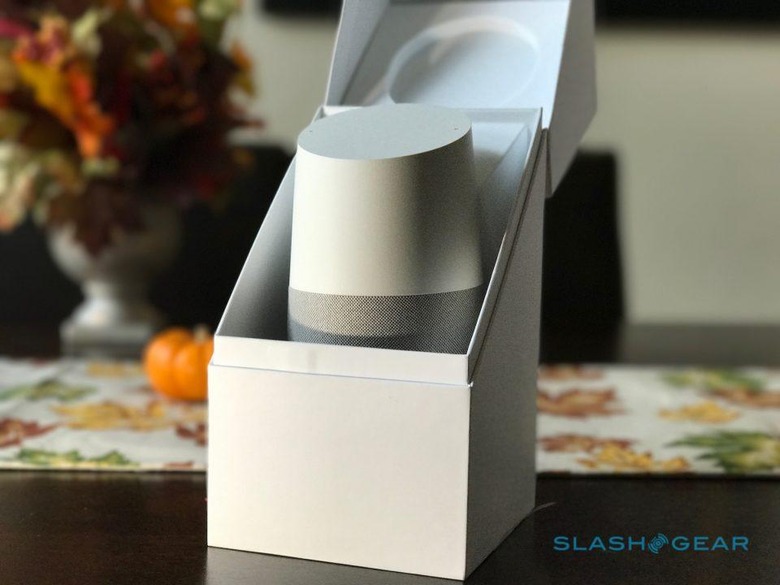
Currently, the only option is to specifically switch off access to any particular account or feature you don't want Home to give ubiquitous access to. That's managed through the companion app for Android and iOS, with toggles for things like Calendar, Gmail, and YouTube. It's an all-or-nothing setting, mind: since Home doesn't recognize "authorized" users, you either have the integration turned on or you miss out on the functionality altogether.
Alexa has the edge on third-party integration
Out of the box, Google Home supports a handful of smart home integrations and a couple of third-party services. For instance, you can link your Philips Hue lights with the hub and merely speak to turn them on or off, while unsurprisingly there's compatibility with Nest's Learning Thermostat. You can ask Nest to turn the temperature up or down to a specific temperature, or alternatively just tell Home you're cold and have it adjust it automatically.
If you're looking for even greater flexibility, add a SmartThings hub and anything linked to that will be at the control of Home. For online services, IFTTT support allows you to trigger recipes by voice: you could have your Facebook update by spoken command, for instance, or use it to trigger connected HVAC systems other than Nest. Finally, there's Uber integration, so you can summon a car by asking Home.
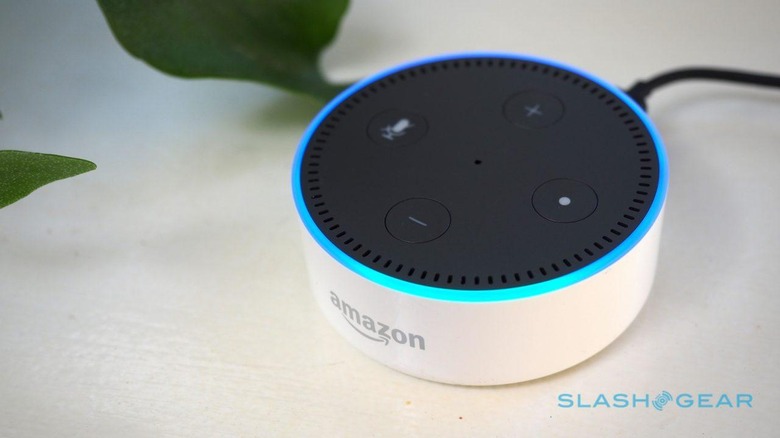
MORE INFO: Amazon Echo Dot Review
Unfortunately, that pretty much amounts to table-stakes, and right now Amazon is making good advantage of its lead with Echo. There are more than 3,000 different "Skills" as Amazon refers to them, ranging from the ability to search for and have read out recipes, check the status of your BMW, or see how the stock market is doing. If you want to order a pizza through your Echo, you can do that too.
Google Home will get better in time
It's in Google's best interests to make Home better sooner rather than later. After all, its business is based on knowing as much as possible about its users: the more insight the Google Assistant has into your everyday life, tastes, accounts, and habits, the more it can monetize you. That's the trade-off you make when you agree to register a Gmail account, enable Google Now on an Android phone, or even just use search online.
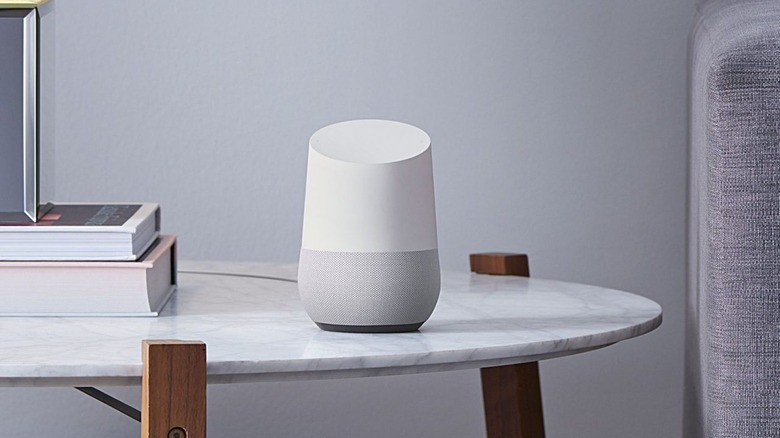
Assuming you're okay with the privacy implications, that level of individual understanding could potentially make Home the queen of smart speakers. After all, Alexa might know what you buy and what music and video you consume, but Google potentially knows who you email, where you travel to, what medical paranoias you look up online at 2am, who you call and message, and more. Piece all those elements together and you have a significant understanding of a person.
Or, at least, you will one day. Right now, despite being unified by the same Google Assistant, Home doesn't really play all that well with products from the company. Sure, if you say "Ok Google" your Android phone will defer to Google Home if it's closer, but you can't send an email from your smartphone via Home instruction, or make calls, or many other fairly obvious integrations.
Wrap Up
The big question many are asking is whether they should sit out of Google's first generation of smart speaker. Right now, there are certainly some pain-points in the experience: searches that are just plain bungled, music that won't stream, or any of the numerous headaches around multi-account support (or, more accurately, its absence). Life on the cutting edge doesn't always go smoothly.
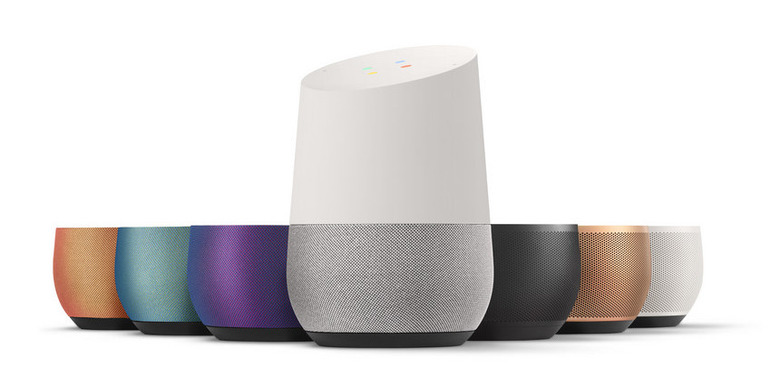
That said, one of the advantages of both Amazon Echo and Google Home is that the smarts are in the cloud. The physical hardware, though it may be what you think of as the assistant, is really just a totem that represents the intelligence running on some far-off servers. That intelligence can be constantly improved, tweaked, and added-to, just as Google works on improving the relevance of search results behind the scenes.
NOW READ: Living with Google Home
At $129, the bar to trying out life with Google Home is low. Right now, with the limited third-party support, it makes the most sense for those already well invested in Google products. As time goes on, though, and the Assistant gets smarter and more deeply connected with other services, you may well start feeling left out if you've not got a Home in your home.
